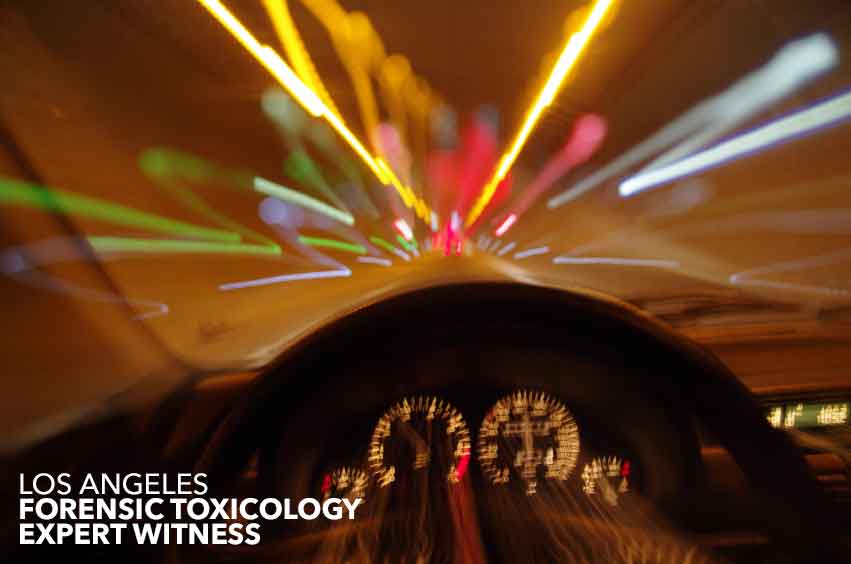Forensic Toxicology: How Drugs Affect Driving

In many criminal investigations it may be that analytical information is needed or testing required regarding the presence of substances at a crime scene or within a person’s body. This is the purpose of forensic toxicology: to test bodily fluids or other substances for toxic chemicals in order to obtain a set of results that can aid the investigation and influence the legal outcome of the court case.
For example, if someone crashes their car, it may be that the driver was under the influence of a mind-altering drug. Uncovering this information will undoubtedly determine the legal repercussions for the driver, and will need to be tested for by forensic toxicologists. The consumption of drugs and toxic substances has damaging psychological and physical effects on a person, and can drastically impact the level of one’s driving capabilities.
Drugs ultimately affect the brain, causing one’s reaction time and judgement ability to be impaired, and can lead one to become aggressive and reckless. Driving and drugs are never to be mixed, because doing so will put you and others in grave danger and can even cause you to lose your life (or someone else to lose theirs).
How the Consumption of Drugs Can Cause Havoc on the Road
Different drugs affect the body in different ways, but it is vital to be aware that consuming a drug in any form will compromise your ability to operate a vehicle safely. Some of the most crucial skills needed for safe driving can be taken away from you when under the influence. It is warned that even prescription medication received over-the-counter can impair mental and physical capacities for tasks such as vehicle operation. Listed below are several ways in which drug consumption affects your mind and body, and its result on driving abilities:
- Coordination
Because driving is a physical action, it requires the mind and body to be in coordination with one another. The ability to perform tasks such as breaking, steering, accelerating and maintaining control over your vehicle can be decreased when the operator is under the influence of drugs. He/she may no longer be able to perform these simple actions effectively, putting him/herself and others in great danger. - Judgement and Decision-Making
Driving a car means that the operator must constantly make decisions and judgements according to what they see. Certain drugs decrease cognitive abilities such as concentration, anticipating risk and danger and making quick decisions, meaning that the driver could easily misjudge factors such as speed and distance, and may not make appropriate decisions. Drugs such as cocaine or methamphetamine give the body feelings of exhilaration, power and excitement which could result in increased risk-taking. - Perception
The primary sense used to operate a vehicle safely is sight. Drugs such as marijuana, LSD or even some medication affect visual perception and create distortion, resulting in blurred and disturbed vision. Other drugs such as cocaine can cause the user to see flashes of light in the peripheral vision. Having impaired visual abilities while driving means that your discernment skills are compromised. - Reaction Time
Being on the road requires that you can react quickly to unexpected occurrences. Information is received and processed by the brain and then an appropriate decision is made in an ideal scenario. However, drug-taking can mean that the driver is not able to react fast enough, resulting in a collision or failure to make an effective maneuver. - Multitasking
Driving requires the driver to multitask, for example looking out other cars and pedestrians while also simultaneously steering, braking, or changing gears. Drug-taking may mean that you are not able to focus on multiple actions at once.
If you would like to read further on the relationship between Drugs and Driving, and Drug Toxicology, note that this article is only one part of a series of articles covering these topics. Stay tuned for the next article on ‘measuring impairment’ coming soon.




